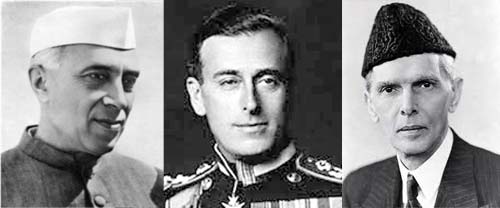Subject: Partition and the curse of exceptionalism.
Muhammad Ali Jinnah was the leader of the Muslim group who sort a state of religious and political separation from the Hindu state, a place where the Muslim faith and the Muslim identity could survive and flourish. As an aim it was reasonable since the intertwining of faith and custom, in this densely populated region meant that although the practicality of living amongst people who had such a different identity worked well there was always the underlying separation of intent. This 'converted intent,' the reason for being a Muslim or a Hindu ran deeply through the social fabric of society and when the arbiters of social cohesion, the British, decided for reasons of exhaustion, having nearly come to grief fighting the Second World War, with troops on the subcontinent yearning to come home and a new government in Britain far less jingoistic than their predecessor, Britain was only too glad to be rid of the political machinations of Jinnah and his Indian counterpart Jawaharial Nehru.
The British have been accused of stepping away too soon from the potential conflict involved in disentangling the huge Muslim population, settled for decades across the whole swathe of India and relocated them largely in the Western Punjab, whilst leaving Eastern Punjab in the hands of the Sikhs and the Hindu. The British were after all only a tiny contingent who could only rule so long as the population were largely content.
The extent of this forced migration of Muslims to their promised land was mainly political but the ravages of savage reprisals, on people, long time neighbours, who had been poisoned to think of each other as different by those who had a political motivation to do so and which the political parties fuelled for their own ends. It was a tragedy involving the lives of families Hindu and Muslim right across the subcontinent.
Millions died in the turmoil, the hatred runs deep and is still there today as both nations confront each other over the disputed state of Kashmir.
The religious contrivance of 'god's will' and cultural conformity have plagued many parts of the world but non more so than in the subcontinent.
It's strange to think, from a secular persons point of view, who's life is garnered from the realities around him, that the construct of religious thought, which in essence defines our lives on earth today in terms of the prescription laid centuries ago, (many centuries in terms of the Hindu Gods), that we still defy the obvious, that mankind is made up of men and women who's principle should be to get on with each other but, through the distortion of exceptionalism, people are led to believe that they are different and that the difference makes them, 'exceptional'.

No comments:
Post a Comment